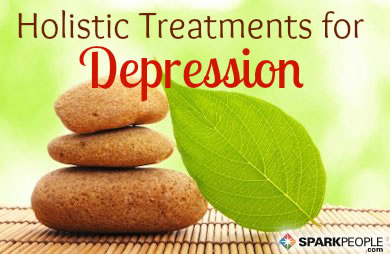Whether you're a parent who works full time, part time, or stays at home, working out can be a challenge. Finding the time amid cooking, cleaning, laundry, homework, sports, lessons, and bill-paying; finding the energy when you're short on sleep; and finding someone to watch the kids so you can get to the gym or go for a jog is no small feat! And then there's the guilt. Maybe you feel guilty because working out means even more time away from your kids, so you choose to skip the gym. Maybe they're with you all day but they cry when you drop them off at the gym child-care, so you opt to stay home instead. Whatever the reason, if you're missing your workouts because you're feeling guilty, read on to shake off the guilt and get fit—because as it turns out, your workouts are actually good for your kids, too!
Why Moms and Dads Should Feel Good about Working Out
- You'll be a healthier parent.
Undoubtedly, you've deemed "being there" for your child as important, which is probably why you're reading this. It's a scientific fact that regular exercise will raise the odds that you'll literally be there—as in, alive and able to spend time with your kids. According the British Medical Journal, regular exercise reduces the risk of heart attack, stroke, osteoporosis, non-insulin dependent diabetes, and cancer. So rather than thinking of your workouts as subtracting from the time you can spend together, realize that they're actually multiplying it. How much? According to a study published in Psychology Today, just walking about 40 minutes a day could add more than four years to your life. Add in healthy eating, stress management practices, and healthy relationships, and you're golden (and around for your grandchildren).
- You'll improve your mood.
Spending time with your kids is important, but if you ask them, they'd probably enjoy it more if your mood was better. Exercise helps with that, too. When you exercise, your body releases endorphins, which are pain-reducing and mood-enhancing chemicals. Endorphins work fast, improving your mood in just minutes, and they keep working long after you've finished your workout. According to Harvard Health, just walking briskly for about 35 minutes, five days a week, can help alleviate mild to moderate depression. In a study published in the Archives of Internal Medicine, men and women suffering from depression were divided into three groups, and prescribed either aerobic exercise, medication, or both. After 16 weeks, 60-70% of the study subjects in all three groups were no longer suffering from major depression. It stands to reason that regular physical activity would boost the mood of non-depressed individuals, too.
- You'll feel calmer.
Any parent can tell you that, as precious and angelic as children can be...they'll also drive you nuts! They'll hide their clean laundry under their bed instead of putting it away, they'll drop pennies in between the piano keys, they'll writhe and scream while you're fighting with the self-checkout kiosk at the grocery store, and they'll track mud all over your freshly mopped floor. So how will exercise help all that? It won't change their behavior, but it will give you a buffer so you can see their behavior in a different light. Ever heard the phrase "the power of the pause"? Instead of just getting easily frustrated with your kids, the mood-enhancing and stress-reducing properties of exercise can help you pause before you overreact. You'll be more likely to stay calm if you're burned off some stress by moving physically.
- You'll be more creative.
Being a parent requires creativity and resourcefulness. Quick: Entertain your toddler while cooking dinner! Come up with a costume for dress-as-your-favorite-saint day with one hour of notice! Make afternoon piano practice fun for your preschooler who recently gave up naps! It might be argued that being a parent requires as much creativity as being an artist. Actually, parenting really is an art, and exercise can be your muse. Studies show that moderate aerobic exercise can get your blood pumping and your creative juices flowing immediately following exercise and for hours afterward. Creativity can come in handy not only during arts-and-crafts hour, but also around discipline. Remember that powerful pause? Increasing creativity can help you brainstorm creative discipline solutions so you come up with the perfect strategy in that moment. Creativity also helps in conjuring up quality-time activities to do with your kids. This is especially important for working parents, when the focus is on quality—and not quantity—of together time, but it's also important for stay-at-home parents when time together isn't automatically quality time.
- You'll have more energy.
It's no secret that being an active and engaged parent requires energy. Carrying them, chasing them, corralling them, and staying awake to read them their bedtime stories all require physical and mental exertion. And although exercise requires energy, it actually gives back more than it takes. Researchers from the University of Georgia found that sedentary people who complained of fatigue actually increased their energy levels by 20% and decreased fatigue by 65% just by regularly participating in low-intensity exercise. Even just walking more during the day can improve energy levels. Additionally, Northwestern University's Feinberg School of Medicine researchers found that you'll sleep better if you exercise on a regular basis. Think of all the energy you'll have to spend on your kids during that quality time.
- You'll be more focused.
You're certainly familiar with the term "mommy brain," which describes the mental fog that ensues after having a baby. It could be caused by hormone changes, a sudden increase in responsibilities, sleep deprivation, stress, or a combination of all of these. Regardless, new moms (and dads) can combat this brain drain by exercising. According to Dr. John Ratey, author of "Spark: The Revolutionary New Science of Exercise and the Brain," in the short-term, exercise sharpens focus for two to three hours after your workout, and in the long-term it even combats Alzheimer's disease. These benefits happen due to exercise's positive impact on neuroplasticity, or improvement in neural pathways and synapses. Focused parents crank through their to-do lists faster, and have plenty of time left over to spend with their kids!
- You'll be a good example.
Albert Schweitzer said "Adults teach children in three important ways: The first is by example, the second is by example, and the third is by example." We want our children to grow into happy and healthy adults, which includes finding balance in their lives and taking time to take care of themselves. This is perhaps the strongest argument for ditching the guilt and getting to the gym. You'll be a good example of living a healthy lifestyle for your children to model now and down the road when they're faced with the same decision.
So the next time you're wondering if you should you just stay home, remember the perfect analogy offered by flight attendants everywhere: You have to put on your own oxygen mask before helping your child do the same. When you're feeling guilty about taking time away to work out, it's important to remind yourself of all of the benefits a regular exercise routine offers not just to you, but to your children, too.
|
|

.png)



















